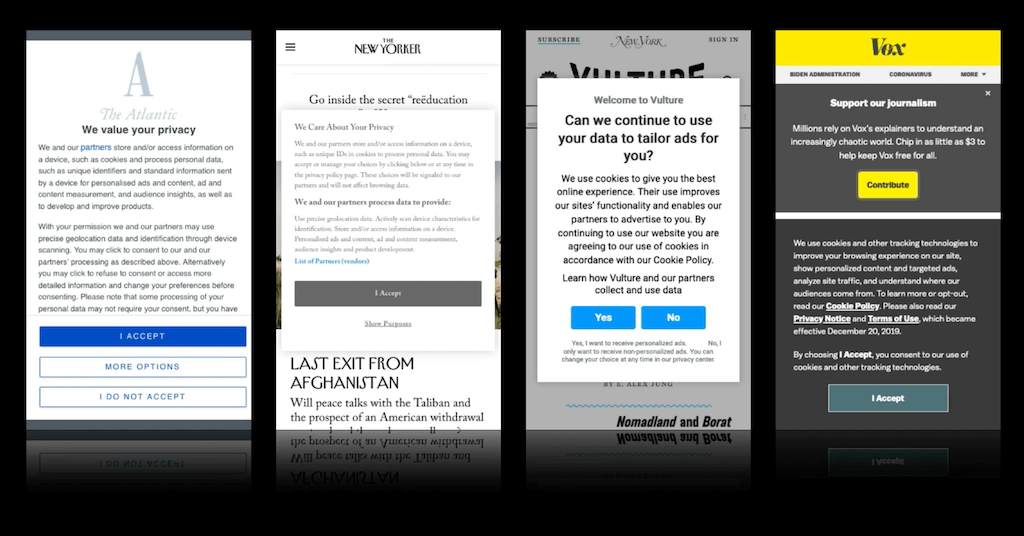Someone shared a talk that Jeremy Keith gave at An Event Apart earlier this year: The State Of The Web.
It's part history lesson, part open letter to anyone who builds on the web today.
You should just leave this page and go watch the talk now (or read the transcript), but if you want to stick around, I wanted to emphasize a very interesting point (a paradigm shift?) about advertising on the web.
Keith points to one of the issues with the modern web:1

This is what users experience. A tedious, frustrating game of whack-a-mole with websites that claim to value our privacy while asking us to relinquish it.
Here it comes:
On the face of it, the problem seems to be with the business model of advertising. But that’s not quite right. To be more precise, the problem is with the business model of behavioral advertising. That relies on intermediaries to amass huge amounts of personal data so that they can supposedly serve up relevant advertising.
But contextual advertising, which serves up ads based on the content you’re looking at, doesn’t require the invasive collection of personal data. And it works. Behavioral advertising, despite being a huge industry that depends on people giving up their privacy, doesn’t even work very well. And on the few occasions when it does work, it just feels creepy.
The problem is not advertising. The problem is tracking. The greatest trick the middlemen ever pulled was convincing us that you can’t have effective advertising without tracking. That. Is. False. But they’ve managed to skew our sense of perspective so that invasive advertising seems inevitable.
I had never thought of this contextual/behavioral advertising distinction before—as Keith is saying, I just always associated advertising with tracking.
In a way, contextual advertising is more similar to "offline" ads (think The North Face spreads in outdoors magazines, Magnum commercials at cinemas, etc.), targeted to context rather than behavior, and much less intrusive.
Online, is it more like affiliate links and brand partnerships? Technically, these should't require any tracking and cookie banners.2
What would it take for high-traffic websites to shift their revenue from behavioral advertising towards contextual advertising?
What would it take to ditch the cookie banner? I think it's worth noting here that although there's more and more cookie banners on the web (and that's annoying), before laws like GDPR user experience was better at the expense of privacy. But instead of rethinking advertising when GDPR came about, we shifted the burden onto users to opt into tracking. ↩ Cookie banners aren't only required because of advertising of course, it's slightly more complicated than this. Analytics is another major reason, but there are many. fantastic. cookie-less. alternatives to GA today. Where are the alternatives to Adsense? ↩Footnotes